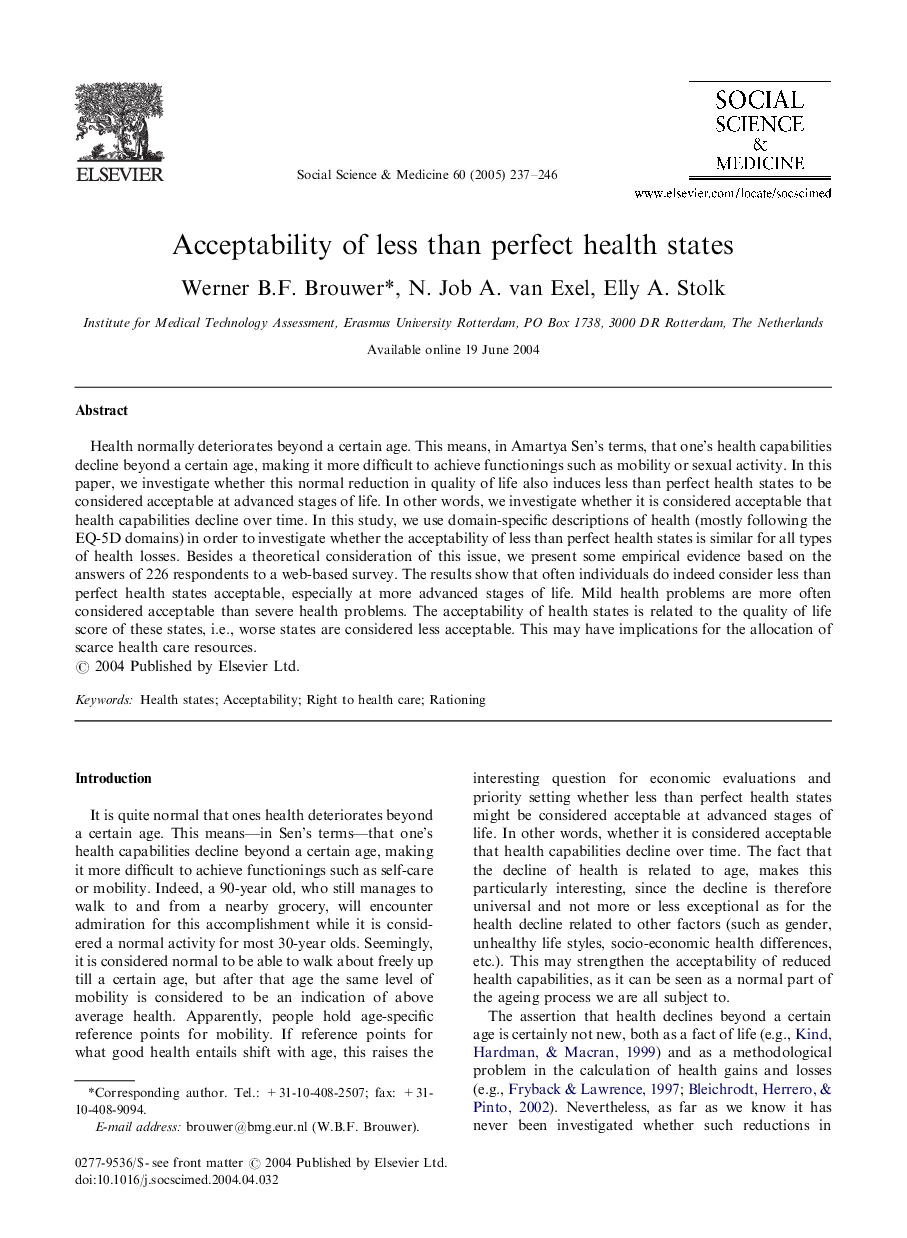| Article ID | Journal | Published Year | Pages | File Type |
|---|---|---|---|---|
| 10473306 | Social Science & Medicine | 2005 | 10 Pages |
Abstract
Health normally deteriorates beyond a certain age. This means, in Amartya Sen's terms, that one's health capabilities decline beyond a certain age, making it more difficult to achieve functionings such as mobility or sexual activity. In this paper, we investigate whether this normal reduction in quality of life also induces less than perfect health states to be considered acceptable at advanced stages of life. In other words, we investigate whether it is considered acceptable that health capabilities decline over time. In this study, we use domain-specific descriptions of health (mostly following the EQ-5D domains) in order to investigate whether the acceptability of less than perfect health states is similar for all types of health losses. Besides a theoretical consideration of this issue, we present some empirical evidence based on the answers of 226 respondents to a web-based survey. The results show that often individuals do indeed consider less than perfect health states acceptable, especially at more advanced stages of life. Mild health problems are more often considered acceptable than severe health problems. The acceptability of health states is related to the quality of life score of these states, i.e., worse states are considered less acceptable. This may have implications for the allocation of scarce health care resources.
Keywords
Related Topics
Health Sciences
Medicine and Dentistry
Public Health and Health Policy
Authors
Werner B.F. Brouwer, N.Job A. van Exel, Elly A. Stolk,
